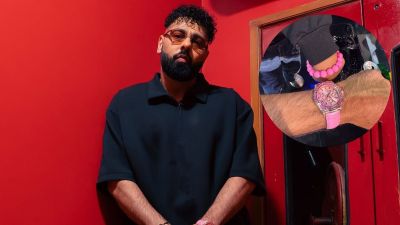Musical philosopher
The correct word to describe Pandit Ajay Chakravarty would be philosophical singer. Because the thought flow of this Indian classical doyen behind every heart-winning performance is characterised by the philosophy that he has gathered in the walk of life.

The correct word to describe Pandit Ajay Chakravarty would be philosophical singer. Because the thought flow of this Indian classical doyen behind every heart-winning performance is characterised by the philosophy that he has gathered in the walk of life.
It is as if he collects the extracts from the five elements of nature and unveils in front of the audience the essence of them all.
8220;There is no separate entity as music. Music exists everywhere- in the first flight of a bird, the movement of leaves, barking of a dog and so on. Unfortunately, we do not have time to listen to the music created by nature. Nature is the source of music and God has put that same source in our breath as well,8221; says he, adding, 8220;It is the same breath captured in a frame that makes music.8221;
Chakravarty, who was inspired to become a singer by his father, elaborates on the journey, saying, 8220;My father wanted to be a musician himself. But due to circumstances, he could not become one. My mother told me that when I was born in 1952, he told her-my son would either become a musician or won8217;t live at all. Even during my child hood, he would beat me to death if I did not do my riyaz well. He left his job in order to be able to give justice to my musical training.8221;
With his initial training under the guidance of his first guru, Pannalal Samant, Chakravarty learnt music on the background of the beats of the loom that his father used to operate for weaving sarees in order to earn extra money for his training.
8220;Out of the Rs 101 that he used to earn, nearly Rs 20 to 30 would be spent on my musical training. It was this dedication and determination of my father that made me who I am today and I feel that children today need fathers like this.8221;
The first recipient of the Kumar Gandharva Award, Chakravarty feels that music needs to be encouraged in India as a profession right from childhood. 8220;We all want our children to be Lata Mangeshkar and Asha Bhosle, but not at the cost of education. We first teach them to ensure a source of income and then if time permits, they can become great singers. I tell the students8217; parents that if education that starts at the age of three can result in an MBA degree, music, if started at three, can create wonders,8221; he says.
Chakravarty is known to have been training students free of cost for the past 30 years. 8220;Guru-shishya parampara in Indian classical music is beyond commercial gains. In fact, it is this financial aspect that has ruined the purity of this relation. A guru8217;s job is not earn money from music but to teach disciples to become independent musicians,8221; he says, pointing out that music remains a personal discovery and experience.
8220;I say this hesitantly but it is a fact that if someone is a great performer, it does not necessarily mean that his guru also is one,8221; smiles he.
Commenting on contemporary Indian classical music , he admits that the followers of raagdari have looked down upon melodious music. 8220;Raagdari transcends boundaries of caste, colour, religion and language. But we must remember that what reflects through the melodies is the hummable version of raagdari,8221; Chakravarty says.
Presenting the melodious tunes of Koi humdum na rahaan koi sahara na raha, this Indian classical doyen left the audience spellbound.
- 01
- 02
- 03
- 04
- 05































